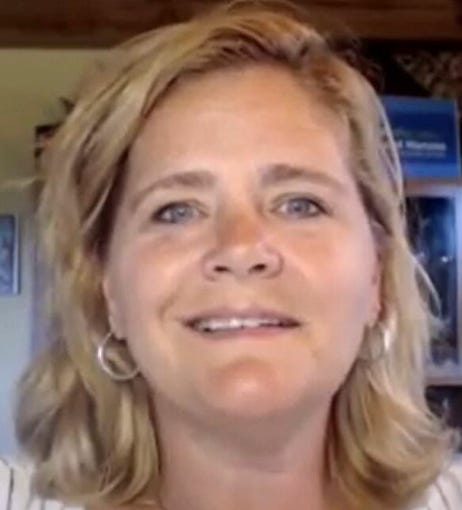Vermont Secretary of State Vows No Voter Data for Trump Admin, Despite No Requests to Date
The Trump administration has previously sought state voter information. In 2017, more than 40 states, including Vermont, refused to share some or all of the requested information.
Just one day after announcing that she would be seeking reelection in 2026, Vermont Secretary of State Sarah Copeland Hanzas issued a public statement Wednesday making clear that her office would not provide personally identifiable voter information to the federal government if asked. The call has yet to come.
Federal Push for State Voter Information
The U.S. Department of Justice under President Donald Trump has been seeking voter registration data from multiple states in recent months, according to Stateline. The department’s letters have asked for details such as voters’ dates of birth, driver’s license numbers, and Social Security numbers, as well as information about how states maintain their voter rolls. At least nine states — including Colorado, Alaska, Arizona, Minnesota, Nevada, New Hampshire, New York, Pennsylvania, and Wisconsin — have received such requests, and the DOJ has indicated it plans to contact all 50 states. Several states have refused to comply, citing privacy laws and concerns about misuse of personal data.
Vermont Has Not Been Contacted
Vermont is not among the states contacted to date. Despite this, Vermont Secretary of State Sarah Copeland Hanzas issued a public statement Wednesday making clear that her office would not provide personally identifiable voter information to the federal government if asked. The announcement, made in a press release from her office, emphasized that Vermont law “specifically prohibits” the sharing of sensitive voter data with the federal government.
Copeland Hanzas’s Public Position
“The policy of my office is very clear: our office has no plans to share Vermont voter data with the federal government,” Copeland Hanzas said in the statement. She framed the announcement as a proactive measure in light of the DOJ’s outreach to other states, noting the state’s legal protections for voter privacy. The release was not issued in response to a specific federal request for Vermont data, nor to a direct media question, but rather as an independent communication from her office.
Historical Context of Voter Data Requests
This is not the first time a Trump administration has sought state voter information. In 2017, the now-disbanded Presidential Advisory Commission on Election Integrity requested detailed voter roll data from all 50 states, sparking widespread resistance. At that time, more than 40 states, including Vermont, refused to share some or all of the requested information. Those refusals were often based on existing state laws limiting disclosure and on concerns about the commission’s purpose and data security practices.
Current Climate of Resistance
Like in 2017, today’s voter data requests have prompted swift opposition from multiple states. Minnesota, New Hampshire, and Wisconsin have each declined to provide full voter lists, and Maine Secretary of State Shenna Bellows publicly rejected the request, saying the DOJ could “go jump in the Gulf of Maine.” Vermont’s early declaration signals it will join that resistance if contacted, underscoring the state’s commitment to voter privacy protections enshrined in its statutes.




